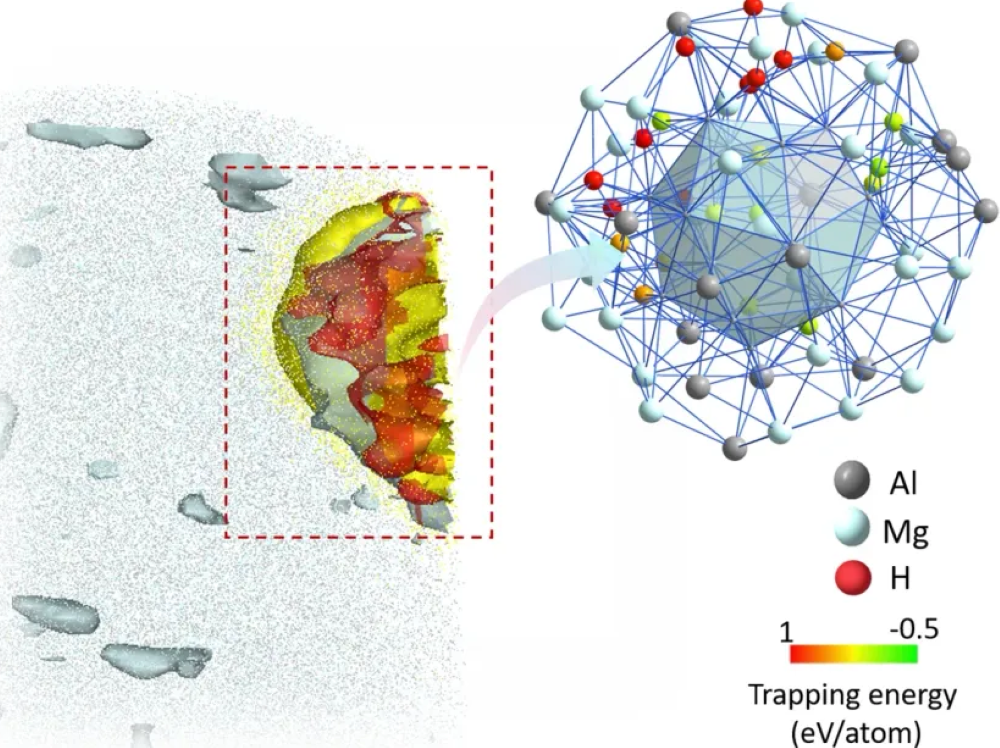Revolutionizing Aluminium Alloy Design for Hydrogen Resilience and Strength
Key Ideas
- Researchers at MPI-SusMat develop a novel aluminium alloy strategy to enhance strength and resistance to hydrogen embrittlement.
- The innovative alloy design achieves a 40% increase in strength and a fivefold enhancement in hydrogen embrittlement resistance.
- Atom probe tomography confirms the hydrogen-trapping mechanism, paving the way for scalable industrial applications in a hydrogen-powered future.
Researchers from the Max Planck Institute for Sustainable Materials in Germany, in collaboration with partners from China and Japan, have developed a groundbreaking alloy design strategy to address the issue of hydrogen embrittlement in aluminium components. The innovative approach involves a two-step heat treatment process that creates dual-phase nanoprecipitates in scandium-enriched aluminium-magnesium alloys. These nanoprecipitates exhibit superior strength and resistance to hydrogen embrittlement, allowing for both high strength and hydrogen resilience in aluminium materials. The new alloy demonstrated a significant increase in strength and resistance to hydrogen embrittlement compared to traditional counterparts, showcasing exceptional ductility under hydrogen exposure. Advanced techniques such as atom probe tomography confirmed the hydrogen-trapping mechanism at the atomic level, further validating the material's design and performance. The scalability of this alloy design was successfully demonstrated through water-cooled copper mould casting and thermomechanical processing, making it compatible with existing industrial practices. This research sets the stage for a new generation of aluminium materials tailored for the demands of a hydrogen-powered future - safe, high-strength, and suitable for industrial applications. The collaborative effort between research teams from China and Germany marks a significant advancement in materials science and paves the way for the development of hydrogen-resilient aluminium components.
Topics
Europe
Innovation
Industrial Applications
Research Collaboration
Materials Science
Aluminium Alloys
Atom Probe Tomography
Latest News
